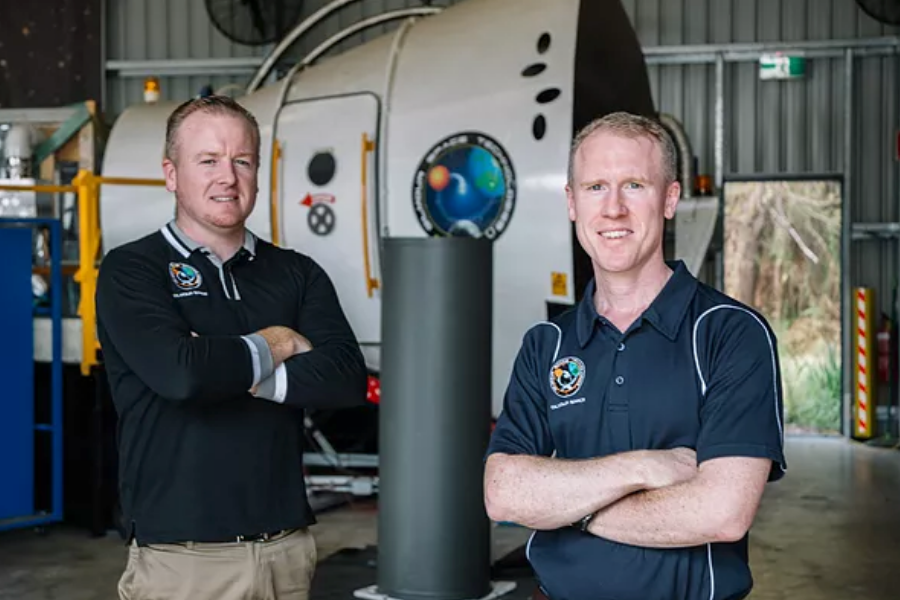Gilmour Space Technologies has raised $19 million in a Series B round led by Main Sequence Ventures and Blackbird Ventures, with participation from other investors including 500 Startups.
Founded by Queensland brothers Adam and James Gilmour in 2013, the company aims to provide an affordable path to launch into low-earth orbit (LEO) with its hybrid-engine rockets.
With plans to launch two satellites by 2021, Adam Gilmour said the startup is currently at a technology readiness level of six, putting it “well ahead” of most of competitors globally.
“The fact that we’ve come this far on relatively little funding is also a testament to our innovative engineering and low cost manufacturing capability,” he said.
“This round of investment will give us the safe runway we need to build and launch our first commercial hybrid rocket to orbit in 2020.”
The startup last year raised $5 million in a Series A funding round led by Blackbird Ventures.
Martin Duursma, partner at Main Sequence Ventures, said Gilmour Space is a “great example” of the rise of innovation in the Australian space industry.
“No longer is Australia only focussing on so-called downstream applications, but now with Gilmour will also have the capability of launching satellites for both commercial and national benefit. We are excited to support the company in its growth in Australia and beyond,” he said.
Rick Baker, cofounder of Blackbird Ventures, added, “This Queensland-based rocket company is well on its way to developing, building and launching a commercial orbital rocket for under $30 million in capital raised. The result will be a low-cost rocket that is going to change the economics of small launch.”
The startup, which also has operations in Singapore, earlier this year entered into a Space Act Agreement with NASA.
Under the agreement, Gilmour Space will work with NASA on rover testing at Kennedy Space Center, and explore opportunities for future activities “in areas of mutual interest”, such as space transportation, propulsion, and life support systems.
The raise follows the Australian Space Agency yesterday announcing it has signed a statement of strategic intent with Airbus Defence and Space SAS.
Airbus in June chose Wyndham airfield in Western Australia as the first flight base for its Zephyr solar-powered unmanned aircraft.
Airbus has been committed to growing Australia’s space industry and in June 2018 selected Wyndham airfield in Western Australia as the first flight base for its pioneering Zephyr solar-powered unmanned aircraft.
Minister for Industry, Science and Technology, Karen Andrews said, “The statement is confirmation of Airbus’ support for Australia’s space discovery, technology development and connectivity, and science, technology, engineering and maths education.”
Image: James and Adam Gilmour. Source: Supplied.




















Trending
Daily startup news and insights, delivered to your inbox.